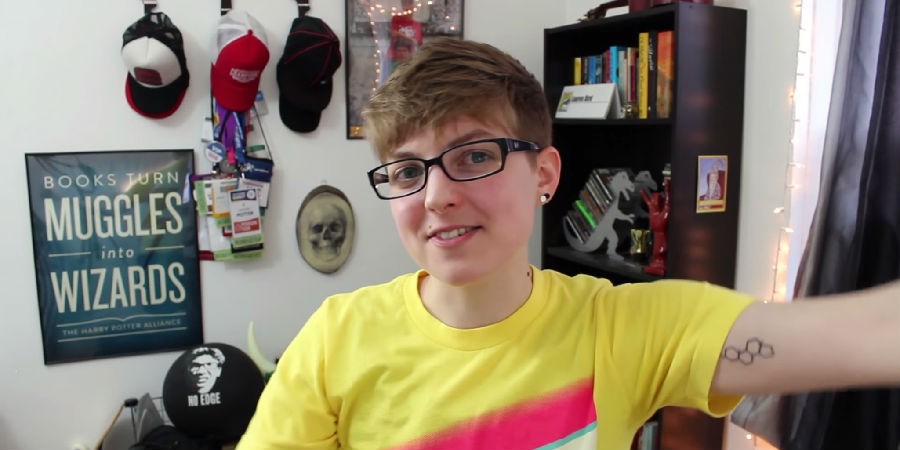JUDY WOODRUFF: Next, we turn to another installment of our weekly Brief But Spectacular series, where we ask people about their passions. Tonight, in honor of LGBTQ Pride Month, we hear from YouTube contributor Jackson Bird. He hosts the podcast "Transmission" and creates videos for transgender people and for everyone to better understand the transgender community.

JACKSON BIRD, Activist: I think it can be difficult for people to wrap their heads around gender, specifically cisgender people, people whose gender identity is congruent with the one that they were assigned to them at birth. It can be difficult for them because they never had to question their gender, which is astonishing to those of us who are trans, because we spend so much of our time questioning gender and thinking about it in a very existential way, and wondering why is gender, and what is gender, and how did this happen? When I was 25, I came out as transgender, which means basically I came out as a guy. When I say that I'm a transgender man, what that means is that, when I was born, I was assigned female at birth. I was socialized as a girl growing up. It never really felt right. From a young age, I just felt like I should've been born a boy. I didn't share it with anyone. I didn't think I could share it with anyone. So, what I did instead was, think, well, this is the life I have to lead as a woman. So, I will just try to be the best woman that I can be in whatever that means in a very stereotypical way from society. Hi, my name is Jackson Bird. And I am two years post-top surgery. Why does he have his shirt on then? Isn't the point of these videos? His shirt should be off. Ain't happening. Here's why. I have been making videos on YouTube for a long time. And I started making them when I was kind of dealing with my gender identity and kind of knew at the back of my head that, if my audience continued to grow on YouTube, I would eventually have this pressure of having to come out publicly online. There's something in the trans community called living stealth. And only some trans people even have this privilege. What it means is that you are perceived enough, you are read as the gender you identify as that, when you go out and about in your everyday life, people aren't going to question your gender. For anyone who is not consistently read as the gender they identify as, it's so much harder, because they're going out in public every single day just living their lives, and having strangers on the street, on the subway, the cashiers at the grocery store giving them weird looks, maybe even dirty looks, making them, like, explain themselves anywhere they are. So, that's an every single day, multiple times a day coming out process, on top of the very turbulent, traumatic one that you probably already had when you told your family and friends. If you're watching this and you're wondering what you can do to help close the gaps of an inequality that exists between LGBTQ+ people vs. straight and non-transgender people, I think the biggest thing is to just see the humanity in us, to raise up our voices, especially in so many places of media and community and spaces where our voices are under-represented. I didn't have any transgender role models growing up. I hardly had any gay or queer role models growing up in Texas in the '90s. I didn't even know that transgender men existed. That lack of representation growing up made me literally feel like I was alone in the world and there was no one else like me. So to now get to be the role model that I needed as a kid is just indescribable. My name is Jackson Bird, and this is my Brief But Spectacular take on providing a platform for transgender people.
JUDY WOODRUFF: And you can find additional Brief But Spectacular episodes on our Web site, PBS.org/NewsHour/Brief.












